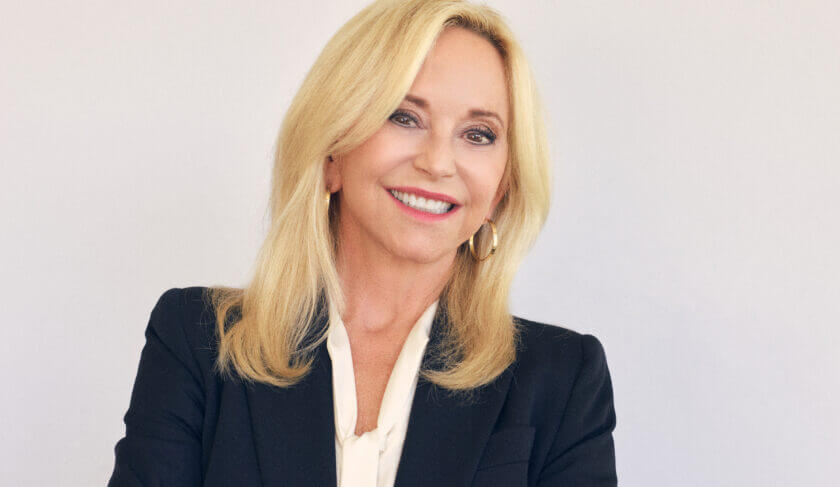
Julie Wainwright didn’t always expect to start from scratch. After leading companies like Berkeley Systems and Reel.com, she ran pets.com. But then it closed months after the company went public.
Now two decades later, Wainwright runs The RealReal, a multi-million dollar online consignment store. And she’s not done yet.
LISTEN: Hear what Julie has to say during her conversation with Karen Finerman on the “How She Does It” podcast.
‘It Was A Bad Morning’
Wainwright was successful when she was at the helm of software company Berkeley Systems and online video seller Reel.com. She was picked to run pets.com in early 2000, but the company shuttered less than a year after its initial public offering. The good news is that closing with a net-positive allowed Wainwright to give back to her employees.
“In closing down it allowed us to give money back to our investors [and] provide a parachute for the employee so they weren’t left stranded,” she says. Most companies that shutter aren’t left with cash in their accounts. But the decision to close wasn’t the only bad news of the day.
“I was trying to be a good actor,” Wainwright says. “And that morning my husband asked me for a divorce, so it was pretty shocking. It was a bad morning.”
After closing up shop and navigating a divorce, Wainwright struggled to find herself again.
“ I beat myself up internally for a long time and had to figure out how to get out of that hole,” she says. “What I didn’t realize until later was that I was pretty unemployable in the tech world after that.”
Embracing Failure — Even When Others Don’t
After the bust of pets.com, Wainwright struggled to find work.
“No one wanted that one failure,” she says. “And you’ll hear people in the tech world, ‘we embrace failure.’ I would say they don’t, right? Because they just don’t. That sounds like a really great thing to do, but no one likes to lose money.”
It took Wainwright a while to discover no one wanted to hire her. She says that being a female in her 40s was holding her back. Rather than let that keep her down, she did some soul-searching.
“I had to find my own inner core because the industry that had allowed me to have an exciting career and a good career had turned its back on me and said I was a failure,” she says. “And I kept thinking, ‘but I’m not.’ I had to figure out a way to move on from that.”
How Julie Shined With The RealReal After Pets.com Bust
Wainright knew that she had to figure something out or she’d have to leave the industry. With a framework in mind of how to tap into a luxury e-commerce market, she didn’t quite have a full plan for getting back to work. But then on a shopping trip with a friend, the lightbulb went on.
“We were shopping in a full-service boutique and there was a little bit of consignment in the back, and that’s where my friend shopped,” she says. “And she never would shop at a consignment store. She said she would never shop on eBay, which [was] really your option at the time. She was a venture capitalist, so she didn’t buy things necessarily on sale, but she’s like, ‘everyone loves a good deal on Prada, Louis Vuitton, and Gucci.’”
Wainwright went home and did a deep dive in the luxury market and the holes she knew Amazon alone couldn’t fill. Although Amazon is a giant in the e-commerce industry, Wainwright knew she had something they didn’t: luxury reselling online. With a strong idea and confidence in hand, The RealReal was born.
“This was a big idea,” she says. “I knew I would execute well [and] I knew what my strengths were. I didn’t worry about being that public because I wasn’t going back to the community I thought would reject me.”
It’s Time to Make Resale Cool
For the first few months, the site would sell out almost immediately. Demand wasn’t hurting — it was supply. Then they got a break.
“We got a call from a woman who says Paula Abdul is ready to consign,” Wainwright recalls. “‘Can you send someone tomorrow [because] she wants to clear out her warehouse.’ And I’m like, ‘sure!’”
After two and a half days, Paula Abdul was The RealReal’s first big consignment. They sold out of Abdul’s goods.
“We set out both to make resale cool and to educate people about the importance of the circular economy and the negative impact of the fashion industry,” she says. “I’m really proud of that because the negative impact on the environment cannot be ignored anymore.”
The first year of business they did $10 million in gross merchandise volume. Wainwright went to raise money from VCs, but not all of them wanted to work with her.
“ I walked into a venture capital firm and I explained our strategy,” she says. “And this man said ‘Julie, I’m sorry, but my wife would never let anyone in our home.’ And I said, ‘Actually, we were there last week.’ He was shocked.”
In 2019, Wainwright took The RealReal public. She’s one of only about two dozen women to take a company to an initial public offering.
READ MORE: 8 Places To Donate Or Sell Clothes And Make Money







